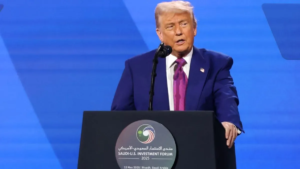A Delicate Balancing Act: The US-Russia Prisoner Swap
The recent prisoner exchange between the United States and Russia represents a complex interplay of geopolitical interests, humanitarian concerns, and domestic political pressures. While the release of American citizens, including journalist Evan Gershkovich, is undoubtedly a cause for celebration, the broader implications of this deal extend far beyond the immediate relief it provides.

A Rare Moment of Cooperation
At its core, the swap is a testament to the enduring power of diplomacy, even in the face of deep-seated animosity. The ability of the two nations to engage in constructive dialogue, albeit on a limited scale, offers a glimmer of hope for potential cooperation on other pressing global issues. However, the inclusion of other countries in the exchange, such as Germany and Slovenia, underscores the intricate web of relationships involved and the delicate balancing act required to secure the release of hostages.
The Case of Evan Gershkovich
The case of Evan Gershkovich highlights the perilous conditions faced by journalists operating in authoritarian regimes. His wrongful detention on espionage charges serves as a stark reminder of the risks inherent in their profession. The successful negotiation for his release not only restores hope for the safety of other journalists but also reinforces the principle of press freedom as a fundamental cornerstone of democratic societies.
The Ethical Dilemma
However, the decision to release convicted Russian criminals as part of the exchange has ignited a fierce debate. Critics argue that it undermines the principles of justice and sends a dangerous message to potential hostage-takers. The trade-off between securing the release of innocent Americans and upholding the rule of law is a complex ethical dilemma that policymakers must grapple with.
Implications for US-Russia Relations
Furthermore, the swap raises questions about the potential implications for future US-Russia relations. While it may create a temporary sense of détente, it is unlikely to fundamentally alter the trajectory of the two countries’ adversarial relationship. The ongoing conflict in Ukraine, coupled with other geopolitical tensions, will continue to cast a long shadow over any potential cooperation.
In conclusion, the US-Russia prisoner swap is a multifaceted event with far-reaching consequences. It represents a rare moment of cooperation amid a broader landscape of competition and conflict. While the release of American hostages is undoubtedly a positive outcome, the complexities of the deal and its potential implications for the future require careful consideration. As the world watches, the aftermath of this exchange will shape the trajectory of US-Russia relations for years to come.










